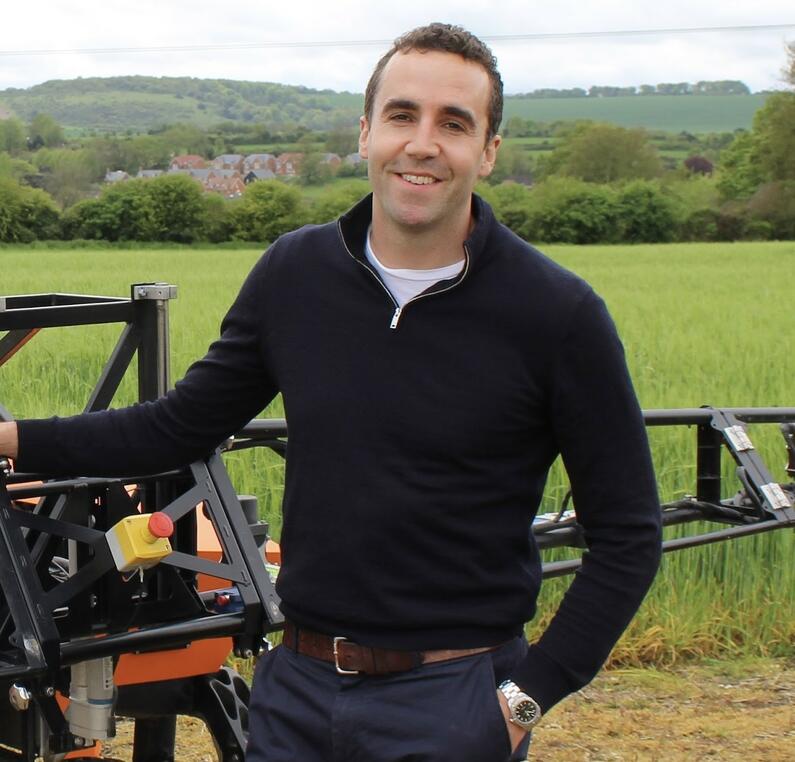
Sam Watson-Jones
I grew up on a family arable farm in Shropshire. I spent seven years working on and managing the farm full time, but I was troubled at how far behind farming was in its adoption of truly digital technologies when compared to other sectors. I felt that without significant technology led transformation, it was going to be very difficult for our business to increase its productivity and profitability, whilst reducing its negative impact on the environment over the long term and I felt that these were challenges that were faced by other farming businesses as well. This led me to found Small Robot Company in 2017 to explore the technologies that were required to lead this transformation, and although I am still involved in the family farm, I have much less of an operational role there and most of my time is now dedicated to this. I am an unashamed tech optimist and in particular I think that Artificial Intelligence has enormous potential to have wide reaching positive impacts for individual farmers and the industry as a whole. I’m excited for the opportunities this scholarship will give me to explore tech development in other countries and to increase my understanding of how the UK can take a lead in this.
Per plant farming, artificial intelligence and the future of arable farming
Elizabeth Creak Charitable Trust

Study Overview
I am particularly interested in the idea of “Per Plant Farming”. This is the idea that technology will ultimately enable us to use Artificial Intelligence to ‘understand’ each individual plant in a field, and to be able to use highly precise hardware and software to treat each plant individually. In essence this is moving arable farming away from the era of blanket applications of chemicals and fertiliser and continuing the trend of precision farming to its logical conclusion.
However, to get to the point where Per Plant Farming is the norm, we will need new technologies to be widely adopted. This will require companies to build the technology, an investment ecosystem which supports extensive R&D and has the patience to support commercialisation, and an element of behaviour change from farmers. Technology will mean that a farm looks different in the future, will mean that farmers take decisions in different ways and use different tools to take action.
This study will seek to explore the different elements required if this future is to be realised. What is the right way for this technology to be built and funded? Will it be primarily startups, universities or incumbent large corporates that lead the way? How can this technology be deployed at scale in a way which improves farmers lives and empowers them? What could the ultimate potential be for global production if Per Plant Farming did become the norm, both in terms of the environmental impact of our farming systems and in terms of overall productivity of the system? And how can the UK develop a leading role in this revolution?
Thank you to the Elizabeth Creak Charitable Trust for sponsoring this scholarship and giving me the opportunity to explore these questions in more depth.